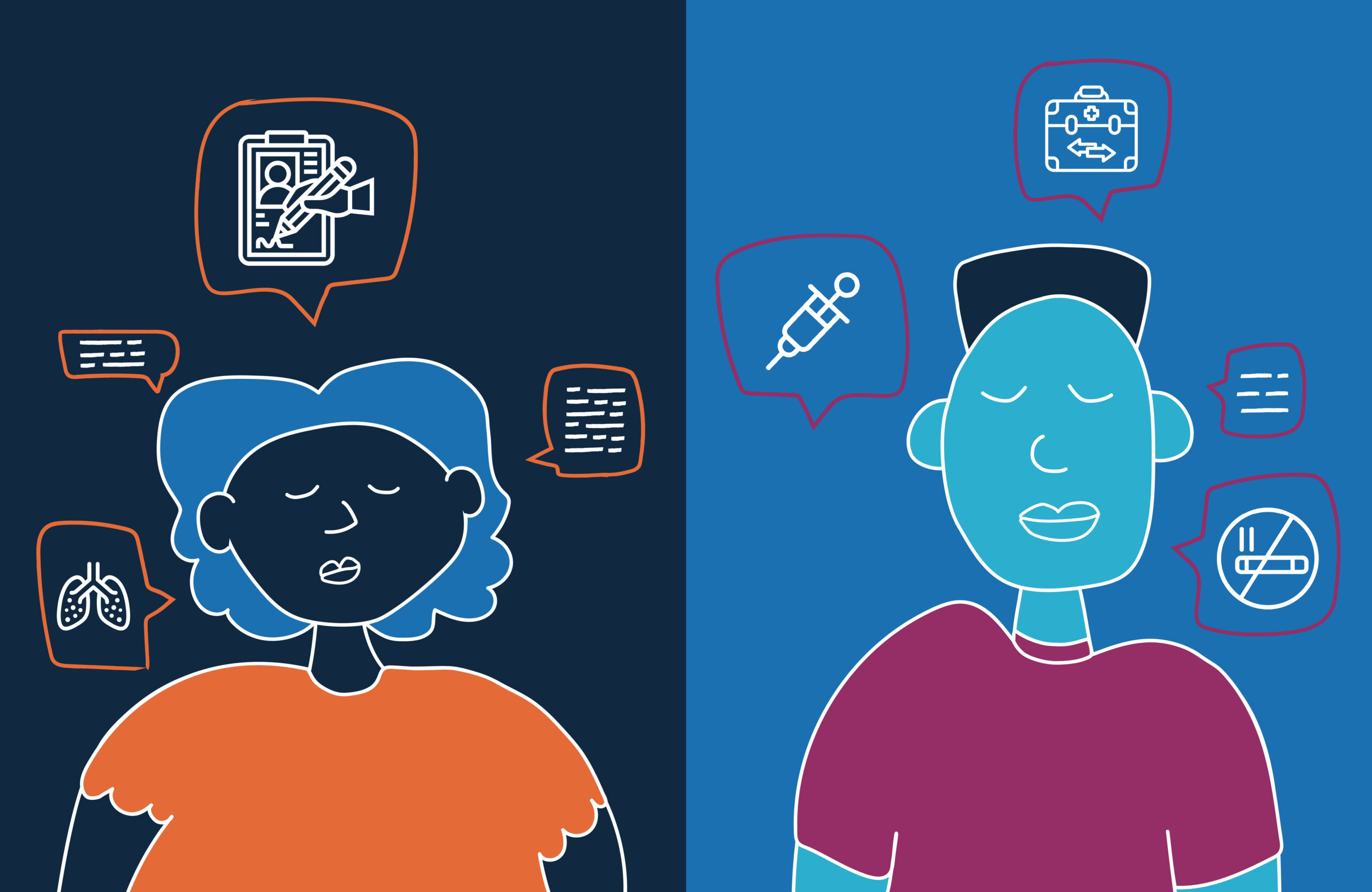We created Healthy Debate to encourage readers to examine challenging healthcare questions that don’t have easy answers. The pandemic has illuminated many such questions, and one getting lots of attention is whether people with severe COVID-19-related lung damage should receive equal access to lung transplants, regardless of vaccination status.
Prior to transplantation, patients are encouraged to get vaccinated for sound medical reasons. Many transplant centers now mandate would-be organ recipients to get vaccinated, despite the still staggering statistic that one quarter of all Americans choose not to be. Do I agree with the transplantation vaccination requirement? Do you? Many can answer that question in seconds, but it’s not as straightforward as it may seem.
The issue of personal choices affecting medical care is hardly new. The fact that people with advanced lung or liver disease need to quit smoking or drinking to be eligible for an organ transplant has never been especially controversial. But today, when COVID vaccinations have become politicized and polarizing, it’s especially fraught. To start unpacking the problem, let’s consider supply and demand, disparities in care, the policy landscape, and medical ethics.
Historically, demand for donor lungs has far exceeded the supply, and the pandemic has only worsened this crisis. Lung transplants for COVID patients rose tenfold between 2020 and 2021, according to the United Network for Organ Sharing. When evaluating transplant candidates, physicians assess many factors to determine the likelihood of long-term positive outcomes. It stands to reason, therefore, that a vaccinated patient who is less likely to be reinfected with COVID in the future should be prioritized for a transplant, right?
Not necessarily. One year into the vaccine rollout, access challenges persist for too many communities. Social determinants including lack of Internet access, lower levels of education, systemic racism, unemployment, and wealth gaps are correlated with lower vaccination rates. Should a transplant candidate who remains unvaccinated because of forces beyond their control be evaluated in the same light as someone who made a deliberate choice to not get vaccinated?
Adding to the confusion is the variability from center to center of transplant eligibility criteria, including whether to offer a lung transplant to unvaccinated COVID patients. As Dr. Deepali Kumar, president-elect of the American Society of Transplantation, explains, “It’s really an individual program decision. In many programs, it’s in flux.” This means someone denied a lung by a transplant center that requires vaccination can find one that only recommends vaccination.
Finally, doctors are healers, not judges. In an emergency room, the perpetrator of a crime receives the same level of care as the victim. Doctors are bound to provide the best care possible, so shouldn’t they treat vaccine adopters and resistors equally, including when a lung transplant is necessary?
These are all important considerations, yet ultimately, we make up our own minds and, like with any healthy debate, both sides can serve up equally persuasive arguments. In preparing this piece, I spoke to people of varying views. One, who strongly believes vaccination is a public health responsibility, said “people have freedom of choice in this country, but choices have consequences, and the consequence might be denied care.” A contrasting view came from someone who argued that since former smokers are eligible for lung transplants, it shouldn’t be different for those who choose not to receive the vaccine. “Vaccination status should never play a role in hospital treatment,” goes the countervailing opinion.
What’s your position? Is it black and white, or shaded with qualifying grays? As healthcare communicators, we need to consider both sides of thorny health equity questions like this one by seeking and hearing opposing viewpoints and, yes, engaging in Healthy Debate.


